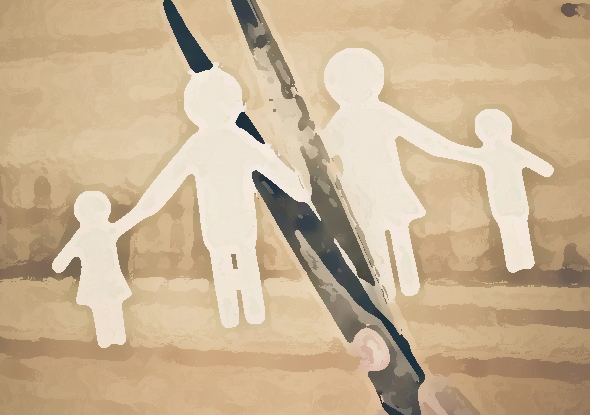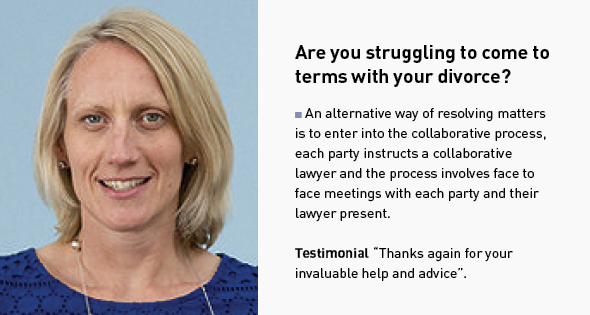Is There A Better Way To Separate?

- This blog contains affiliate links, which we may receive a commission for purchases. The decision is yours, whether or not you decide to buy.
The ending of a marriage is never going to be easy. It is usually the case that one person has decided well before the other that they no longer want to be married.
It comes as a huge shock to the unsuspecting person, which they need to process and come to terms with, whilst the other person has weeks or months to prepare for that point and feels that progress should be made.
Mixed in is the hurt, anger and sadness that come with rejection, trying to put those emotions to one side to approach matters in a practical and sensible way is very difficult. Emotions impact on decision making.
There is often a feeling that one person has more power, maybe because they are the decision maker, i.e. they decided the marriage is at an end;, maybe it is because they have all the financial knowledge, or at least most of it; or maybe it is because they are the person who has looked after the children more and therefore the person with whom the children will live.
Solicitors often see the imbalance in power which impacts on the couple’s ability to come to an agreement and that coupled with a lack of trust, particularly if one party has announced a new relationship, can make sensible, child focused negotiations very difficult.
Another difficulty for the couple who are trying to resolve matters is that they are likely to have a, “Greek chorus”, in the background, made up of family and friends who are concerned and want to help and protect them. They offer their opinions, views and guidance on what they should be asking for and what they are entitled to.
They may talk about their own experiences in a similar situation or they may talk about a friend of a friend who got divorced.
The difficulty for the person listening to the advice will be that they don’t know in the circumstances of that particular case and why one party got 60% of the matrimonial home. Each case is fact specific, it makes the job of Judges and lawyers harder for that reason.
The one thing, other than their children, that the couple still have in common, is that if they seek legal advice they will have legal bills. If they can’t reach an agreement amicably and swiftly, those legal bills will start increasing.
As the legal bills continue to increase the matrimonial asset base that they may be unable to agree on, will be reducing to pay for those legal bills, or because eventually they will need to be paid back from that capital.
In any relationship where the parties are parents there will need to be some ongoing relationship and direct communication will be necessary. Once the parties start communicating solely through solicitors there is too much opportunity for misinterpretation, things said and then done as reaction.
The more direct communication between the parties, the more likely they will remain able to trust each other, to come to an agreement and to continue to feel comfortable in each other’s presence at events for the children going forward.
Not many people can sit down with their separated partner and reach an agreement, on their own, simply because of the level of emotion that exists. The reason the marriage has come to an end will also have a large bearing on this.
In addition if you have never been in this situation before you wouldn’t know what the practical advantages and disadvantages might be in agreements reached.
The court service is currently under a huge amount of pressure and separating parties are being asked to consider alternative ways of resolving how to split the finances and how to make arrangements for the children.
It is now obligatory to have an information and assessment meeting with a mediator called a MIAMS before issuing a court application. It allows both parties to meet with a mediator, agree the financial disclosure that is required, in respect of financial matters and then try and negotiate an agreement.
It is cheaper, and can be more straightforward, (as the Greek chorus isn’t there to give a view). It can be empowering as the agreement is not imposed or ordered by a court. It is an agreement reached through direct communication and the parties are more likely to come away feeling they can accept it and ‘live with it’ because it was agreed by them both.
An alternative way of resolving matters is to enter into the collaborative process, each party instructs a collaborative lawyer and the process involves face to face meetings with each party and their lawyer present. The process is very much led by the parties and they steer much of the discussion.
It means it can be hard work but it does mean that things are not left unsaid and are discussed and generally resolved. It can make a big difference in the long term to address matters that might otherwise have been left unresolved and then prevent smaller matters being resolved.
It is a different process as the lawyers provide general advice and views, but work together to try and help both parties to come up with an agreement, about the finances and the children, that is workable and accepted.
For children, it can be very reassuring to know that their parents are sitting down together to sort things out. They don’t need to know the details but they usually appreciate the reduction in conflict that the collaborative process brings.
To be successful in mediation or collaboration, there needs to be shared objective, which is often the children and putting them first.
Also a certain amount of self awareness, so that both parties can take some responsibility for their actions along with a determination not to end up in a situation where a Judge has decided what happens to the family assets and the process of getting to that point has depleted the family assets.
Written by Helen Waite Solicitor, Collaborative Lawyer and Senior Associate at Thompson Snell & Passmore. www.ts-p.co.uk
You may also like
Books
Buy now from Amazon
Podcast
Sara Davison has created Heartbreak to Happiness podcast. If you’re hurting or struggling with a break up and you’re feeling shocked, betrayed, devastated, and alone then this podcast is for you. Now is the best time to minimize your own suffering in this process by listening in on the most empowering and best relationship advice available.
Articles
- Getting Back With Your Ex: The Pros And Cons
- Busyness And Relationship Breakdown
- Divorce And Online Dating
Videos
Practical advice and tips from professionals on what to do with issues and challenges around divorce from parenting to finance.
Events
Practical tips & advice designed to help people going through divorce, whether online or in person.
Useful links
Here's a selection of organistaioins from parenting to finance to help you with your divorce.
Relationship professionals
Related Posts
-

Divorce And Friendships: Navigating Shared Social Circles
-

Managing Divorce Post-Christmas: Unveiling The January Surge In Separations
-

Thriving Through The Holidays: A Guide To Resilience And Self-Discovery After Christmas, Separation, And Divorce
-

5 Rights Of A Child After Divorce
-

Six Ways A Divorce Coach Can Transform Your Divorce Journey








.jpg)

